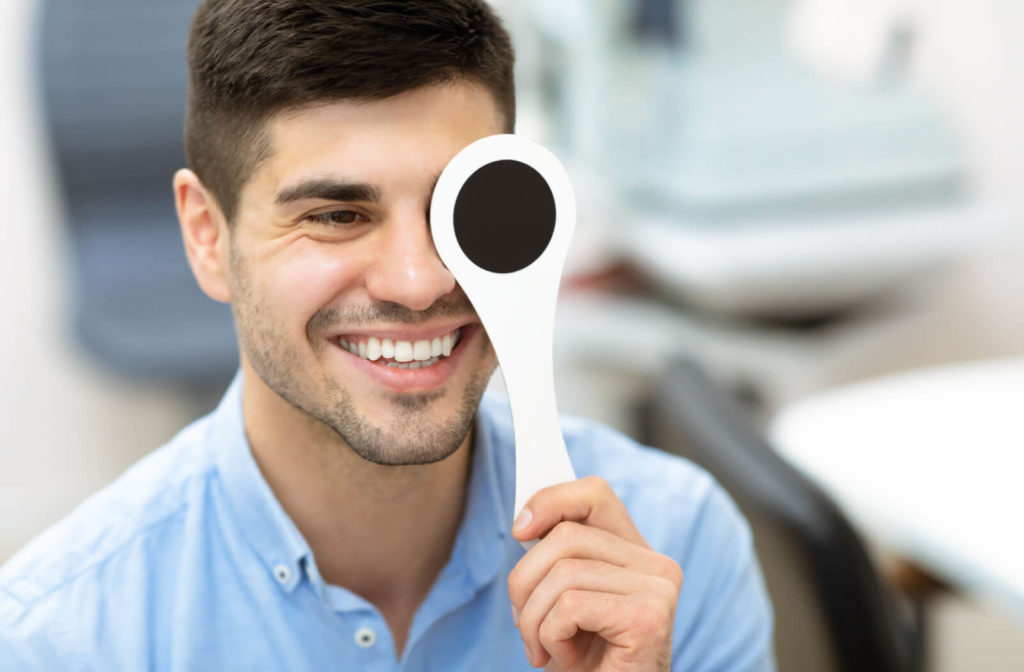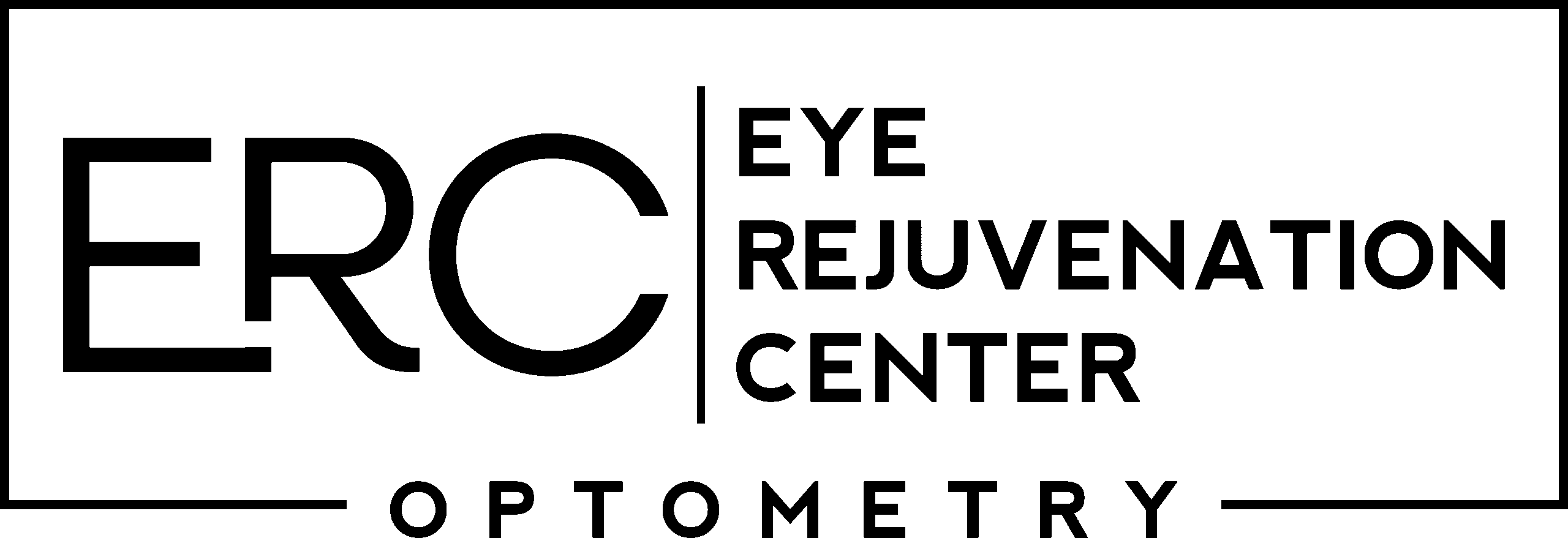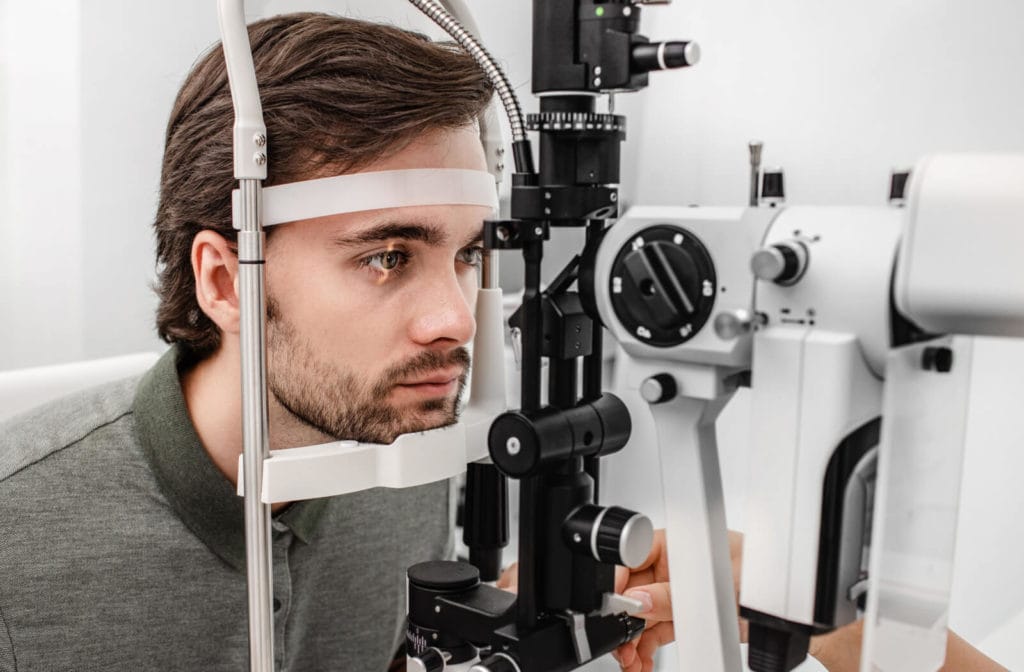Comprehensive eye exams are an important aspect of taking care of your eye health and vision. An eye exam typically takes up to 1 hour but that may vary from shorter to longer between patients. Things like overall eye health, time since your last exam, and any extra treatments your optometrist recommends could affect the time of your appointment.
The recommended frequency is every 1 to 2 years based on factors like age and overall eye health. It’s important to make time for these regular exams to maintain good vision and eye health, even though we all lead busy lives and it could be tempting to push it off down the line.
What Is a Comprehensive Eye Exam?
A comprehensive eye exam is a routine checkup done by an optometrist to evaluate your eye’s health and detect any vision problems. The exam typically includes a vision test, a physical eye exam, and a discussion of your medical history.
Depending on your needs, your doctor may also perform additional tests, such as a glaucoma test or a dilation test. Your eye doctor may also offer specific exams for children or contact lens fitting.
How Long Does an Eye Exam Take?
A comprehensive eye exam typically takes up to an hour. But the actual duration of the exam varies depending on the complexity of the individual’s medical history, age, initial vision test results, and any additional testing or treatments the eye doctor recommends. If the optometrist notices an issue with your eyesight or health that requires further evaluation, they may need to schedule a follow-up appointment or recommend additional tests.
How Often Should You Get an Eye Exam?
The Canadian Association of Optometrists describes some guidelines for eye exam frequency. They recommended that most people get a comprehensive eye exam every 1 to 2 years. This is based on factors like age and overall eye health. For example, they recommend that kids receive an annual exam until 19, then every 2 years after that for most of their adult life. But your eye doctor may recommend a different schedule based on your individual vision needs and eye health.
Importance of Getting Regular Eye Exams
Regularly scheduling a comprehensive eye exam has numerous benefits, including early detection of any potential eye conditions or diseases. A comprehensive exam can assist in catching any potential vision issues early on, allowing for prompt intervention and treatment. Plus, underlying medical conditions like hypertension, diabetes, and cardiovascular disease, can be caught during a comprehensive eye exam.
Many vision insurances cover comprehensive exams, making it easier than ever to take care of your eye health.
What Happens During a Comprehensive Eye Exam?
There isn’t a one-size-fits-all answer for what happens during a comprehensive eye exam because it varies from person to person. But the following are some things that may happen during your next visit to the eye doctor.
Medical History
The optometrist may ask about your medical history before the physical examination of your eyes. Certain medical conditions like high blood pressure and diabetes can affect our eyesight. Additionally, if you have a family history of eye problems, the optometrist will consider that when examining your eyes. For example, the optometrist may spend more time observing the optic nerve and blood vessels in your eyes if there is a family history of diabetes or high blood pressure.
Vision Testing

Your eye doctor will likely test your visual acuity with various tests. These tests measure the sharpness of your vision, your depth perception, and colour perception. The optometrist can use various instruments and charts to evaluate your eyesight.
Eye Movement & Focus
The optometrist can evaluate how well your eyes work together and how quickly they move during this portion of the exam. This can be especially important for individuals who use computers and other screens for prolonged periods.
Eye Health Evaluation
A critical aspect of a comprehensive eye exam is the evaluation of your eye health. During this part of the exam, the optometrist will use specialized instruments to look inside your eyes, checking for any signs of eye diseases such as glaucoma, cataracts, and macular degeneration.
Consultation
Once the optometrist completes the comprehensive eye exam, they can share the results with you and discuss any necessary treatments, such as glasses or contact lenses. They might also discuss treatment options and the importance of follow-up visits if any eye diseases were detected during the exam.
The consultation part of the exam is an excellent opportunity for you to ask any questions or discuss any concerns you might have.
Book Your Next Eye Exam Today
Getting a comprehensive eye exam is about so much more than simply ensuring you can see clearly. Making the time for your annual eye exam pays off. In keeping track of your eye health and changing vision needs as you age you’re giving yourself the best chance at healthy eyes for years to come.
Call us today at ERC Optometry to book your next comprehensive eye examination. We’re happy to book you an appointment with Dr. Megan Byer to review your eye health and vision needs.

